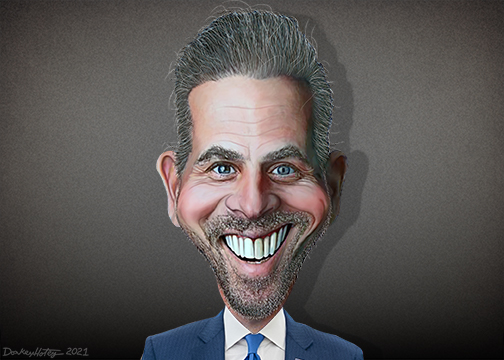Russia begins an investigation into alleged “financing terrorism,” naming Western nations and focusing on the money that US companies have received in Ukraine. The focus of the probe is the Islamic State group’s purported attack on Crocus City Hall, which has heightened relations between Russia and the West.
Burisma Holdings Under Scrutiny: Revisiting the Biden Connection
The focus of the inquiry is on Burisma Holdings, an oil and gas business that hired US President Joe Biden’s son Hunter Biden. Concerns concerning the company’s relationship to the Biden family and its effect on US-Ukraine relations are raised anew under increased investigation.
The relationship between Burisma Holdings and Hunter Biden has long been contentious, particularly in the wake of the 2014 political unrest in Ukraine. Hunter Biden’s position on the company’s board has prompted criticism regarding possible conflicts of interest and claims of undue influence.
The examination has rekindled discussions over the connection between global corporate transactions and political sway, highlighting the challenges of managing both personal and diplomatic relationships.
In addition to looking into financial transactions, the Burisma Holdings investigation also explores the wider ramifications for US foreign policy and bilateral ties with Ukraine. As the investigation progresses, it highlights how difficult it is to strike a balance in foreign economic dealings between diplomatic goals and accountability and openness.
The White House Response: Dismissing Allegations as “Nonsense”
Russia’s accusations are quickly brushed off by the White House as baseless, with US national security advisor Jake Sullivan calling them “nonsense.” The reaction highlights the continued disagreement about the Crocus City Hall attack and its perpetrators between Russia and the US.
Political Ramifications: Leveraging Hunter Biden’s Business Engagements
Republicans are trying to use Hunter Biden’s financial connections in Ukraine as leverage on President Biden, which is why the Burisma Holdings investigation is escalating political tensions in the US. The probe gets mixed up with internal political struggles, bringing to light the difficulties involved in conducting business internationally and wielding political power.
Republicans are using Hunter Biden’s position at Burisma Holdings as a springboard to attack President Biden’s reputation and the legitimacy of his government. Opponents have lobbed accusations of corruption and nepotism, claiming the Biden family has used its political connections for personal benefit. This story has permeated Congress chambers and the media, influencing public opinion and how the US approaches its foreign policy.
The political implications of the probe go beyond party disputes and affect US-Ukraine ties as well as larger geopolitical factors. The Biden administration is under increasing pressure to address issues of accountability, ethics, and transparency in global corporate transactions as it attempts to manage these difficulties.
The investigation’s conclusion might have a significant impact on US diplomacy as well as the integrity of democratic governance. The probe clarifies the complex web of geopolitics, trade, and allegations of illegal funding as it progresses.
Complex Interplay: Geopolitics, Commerce, and Security
The case highlights how closely related domestic politics and international affairs are, highlighting the murky areas where interests converge.
The investigation’s main focus is on the complex forces influencing world politics. Commercial interests, security concerns, and geopolitical rivalries—especially between Russia and the West—intersect to create a volatile environment rife with uncertainty and tension. The distinction between unlawful actions carried out by non-state actors and state-sponsored operations becomes hazier as a result of the suspected sponsorship of terrorism.
Furthermore, the inquiry poses more general concerns regarding the integrity of global corporate transactions and the impact of politics on foreign policy determinations. It emphasizes how important it is for financial transactions to be more accountable and transparent, particularly in areas where there is conflict and instability. To protect international security and stability, countries must negotiate a complicated web of conflicting interests and varied agendas as they struggle with these issues.
The future is unclear as domestic political struggles in the US intensify and tensions between Russia and the West simmer. The Burisma Holdings probe is a sobering reminder of the difficulties in negotiating intricate geopolitical dynamics and the long-lasting effects of international events on world affairs.


